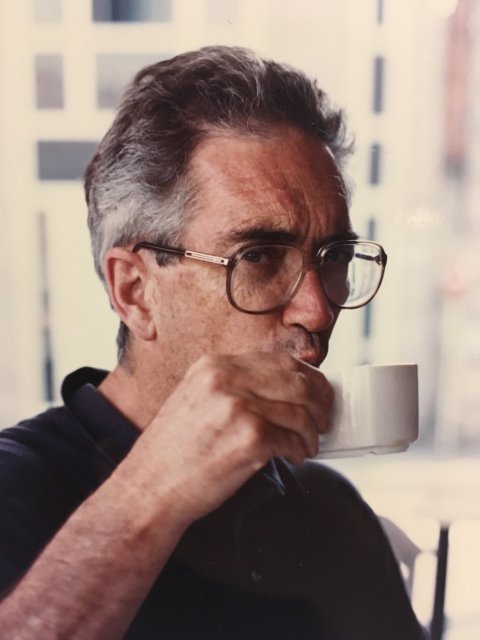In Memoriam: Professor Anthony Bryceson (1934 – 2023)

We were very sad to hear that long-term member Professor Anthony Bryceson recently died. Anthony had been an RSTMH member since 1967 and served on the Council and on the Medals and Awards Committee in 1983 and 1984. He was also Honorary Secretary from 1985 to 1989 and was awarded the Chalmers Medal in 1979. Please find below an obituary written by three former RSTMH Presidents about Anthony and his many achievements.
Professor Anthony Bryceson, who was a Professor of Tropical Medicine at the London School of Hygiene and Tropical Medicine (LSHTM) and Consultant Physician at the Hospital for Tropical diseases until he retired in 2000, died on 19 July in Cairns, Australia.
Anthony Bryceson had been an RSTMH member since 1967 and served on the Council in 1983 and 1984. He was Honorary Secretary from 1985 to 1989 and served on the Medals and Awards Committee in 1983 and 1984.
He was awarded the Chalmers Medal, which recognises researchers in tropical medicine or global health who demonstrate evidence of mentoring and professional development of junior investigators, and other forms of capacity building, in 1979.
In 2008, he was awarded the Donald Mackay Award in 2008, which recognises outstanding work in tropical health, especially relating to improvements in the health of rural or urban workers in the tropics.
He was born in Kohat, now in Khyber Pakhtunkhwa, Pakistan, where his father was a British army officer. After education at Winchester College, Christ’s College Cambridge and Westminster Medical School, he took the DTM&H course at LSHTM in 1961, in preparation for work in Laos in 1961-3. This was supported by the British government’s Commonwealth Relations Office under the Colombo plan, as an alternative to military service. It kindled a lifelong fascination with tropical medicine that was not diminished when he and another young doctor, Colin Prentice, were taken prisoner by Pathet Lao communist rebels in 1962, and held in the jungle for 33 days. They managed to develop amicable relations with their captors. Colin played chess with the leader, while Anthony taught them to play cricket. Two British diplomats brought authority from Pathet Lao’s high command for their release, but were also captured, and it was not until a new coalition government was formed in Laos that they were finally set free.
After returning to the UK in 1964, Anthony became a medical registrar at the Hospital for Tropical Diseases (HTD), and was recruited by Eldryd Parry and Charles Leithead as Assistant Professor at Haile Selassie I University, Addis Ababa, Ethiopia (1965-7). There, he developed his principal career research interest in leishmaniasis, working with Bill Bray, Aklilu Lemma, Pat Preston and others. He established a clinical and immunological classification that had similarities to leprosy. In 1968, he returned to Ethiopia to investigate with Eldryd and David Warrell the potentially-fatal Jarisch-Herxheimer Reaction in louse-borne relapsing fever.
In 1969, when Eldryd was appointed Professor of Medicine at Ahmadu Bello University in Zaria, Nigeria, he persuaded Anthony, David, and Brian Greenwood to help him and the Dean, Harold Scarborough, to found the new medical school. Other enthusiastic young doctors joined them, notably Hilton Whittle, Neil Davidson and Peter Tugwell, leading to ground-breaking research on meningitis, pneumonia, malaria, rabies, sleeping sickness, onchocerciasis, peri-partum cardiac failure, snakebite and other diseases. MRC’s main laboratory was at first generously accommodated in Anthony and Ulla’s spacious kitchens at Kongo House. The highlight of student teaching at ABU, was the superb leprosy course organised by Anthony and missionary surgeon/leprologist Roy Pfaltzgraff at Garkida.
On returning to the UK in 1974, Anthony was appointed Consultant Physician at HTD and Senior Lecturer at LSHTM (Professor in 1996), where he continued until his retirement. During this time, he established an outstanding international reputation as tropical medicine physician, tropical dermatologist (St John's Hospital for Diseases of the Skin 1976-95), teacher, organiser of the DTM&H course (1996-2000), and researcher. He became a world authority (WHO expert committee member) on leishmaniasis, leprosy, trypanosomiasis, onchocerciasis and filariasis. After his retirement he migrated to Cairns to spend more time with his family and grandchildren, where he remained actively involved in medicine.
Anthony’s modesty, courtesy, supreme clinical skills and experience, and willingness to spend time explaining complex pathogenesis and management protocols, endeared him to generations of students. These qualities inspired enormous admiration and affection among his colleagues, while his friends and guests had the privilege of enjoying Anthony and Ulla’s generous hospitality.
Professor David Mabey, Professor Sir David Warrell and Professor Sir Brian Greenwood